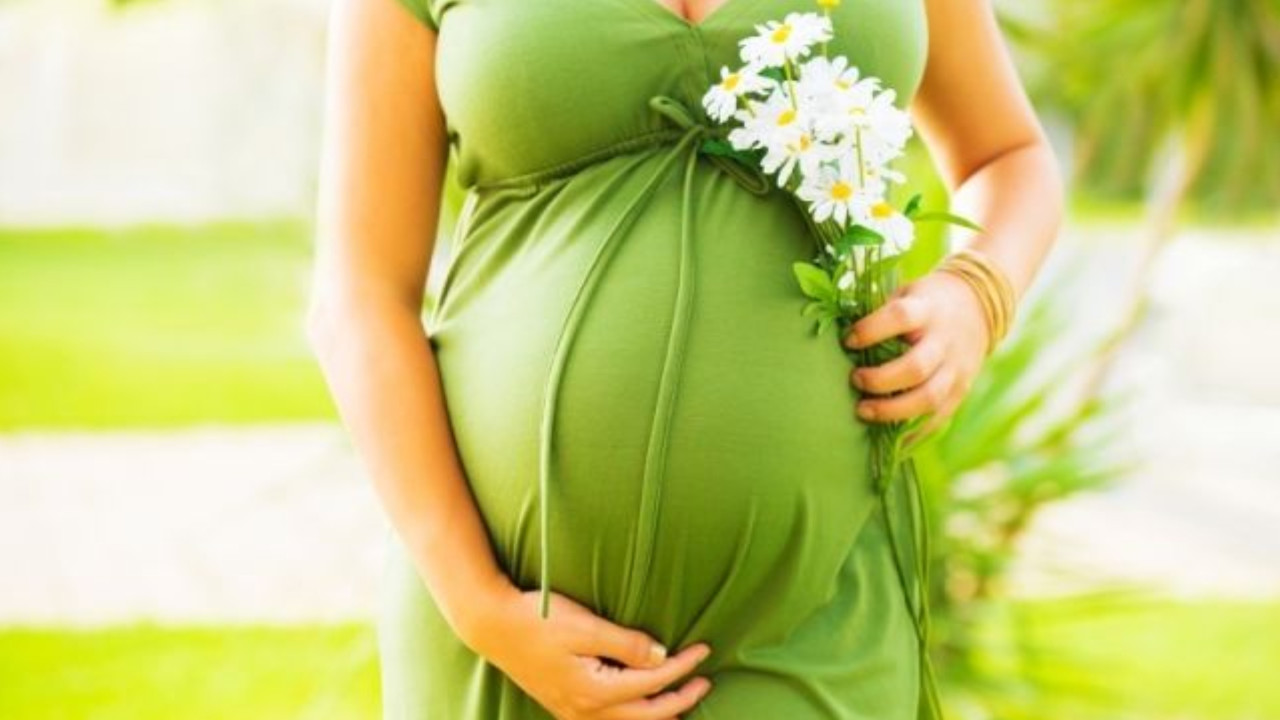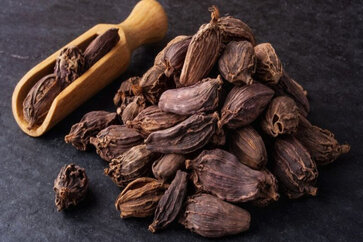Ayurvedic Solutions for Recurrent Pregnancy Loss
Recurrent Being pregnant Loss (RPL), additionally known as recurrent miscarriage or routine abortion, is outlined because the lack of two or extra consecutive pregnancies earlier than the twentieth week of gestation. RPL presents a difficult situation for healthcare suppliers and {couples}, because it entails complicated, usually unexplained elements. 
In fashionable medical observe, figuring out the precise trigger may be tough, with solely a fraction of circumstances having a clearly identifiable pathology. The emotional toll on {couples} going through RPL is important, as every loss brings grief and uncertainty about future pregnancies.
Complete analysis and help are important for these affected, usually requiring a multidisciplinary strategy to deal with each bodily and emotional well being.
Understanding the varied potential underlying causes—starting from genetic abnormalities to hormonal imbalances—can help in growing customized therapy methods and enhancing outcomes for future pregnancies.
Ayurvedic View for recurrent miscarriage
In Ayurveda, recurrent miscarriage is correlated with circumstances similar to Garbhasravi Vandhya and Puthraghni Yonivyapath. These issues, mentioned in classical Ayurvedic texts, supply insights into the basis causes and counsel holistic therapies for therapy.
The Ayurvedic strategy emphasizes the significance of way of life and dietary modifications, detoxing therapies (Sodhana), and particular therapies like Uttara Vasti to enhance reproductive well being and stop additional being pregnant losses.
This text explores each the fashionable medical and Ayurvedic views on RPL and affords a complete understanding of therapeutic methods.
Understanding Recurrent Being pregnant Loss
Recurrent Being pregnant Loss (RPL) is outlined because the lack of two or extra pregnancies, confirmed by sonography or histopathology, earlier than the twentieth week of gestation.
Whereas miscarriage is comparatively widespread, affecting 15–25% of pregnancies, RPL impacts about 2–5% of {couples}, with incidence rising with maternal age.
Figuring out a single reason for RPL may be difficult, because it usually entails a number of elements—genetic, endocrine, anatomical, immunological, and environmental—which will work together. Many {couples} face unexplained RPL, the place routine investigations reveal no identifiable trigger.
Forms of Recurrent Being pregnant Loss (RPL)
1. Main RPL: This kind happens when a lady has by no means had a dwell start. It’s characterised by the repeated lack of pregnancies, resulting in emotional and psychological misery. Main RPL could point out underlying points that have to be explored, similar to genetic elements or anatomical abnormalities.
2. Secondary RPL: This kind happens when a lady has had not less than one profitable being pregnant adopted by recurrent losses. Secondary RPL may be notably distressing, as the lady could have skilled the enjoyment of a profitable being pregnant solely to face repeated heartbreak. Causes may include hormonal imbalances, uterine abnormalities, or immunological elements.
Causes of Recurrent Being pregnant Loss
RPL is taken into account a multifactorial situation, which means that a couple of underlying issue could contribute to being pregnant losses. Under is an in depth have a look at the causes.
1. Genetic Components
- Parental Chromosomal Abnormalities: Balanced translocations or inversions in a single father or mother can lead to faulty embryos, resulting in miscarriage.
- Growing older and Chromosomal Errors: The chance of chromosomal abnormalities in embryos will increase considerably in girls over 35, explaining as much as 80% of miscarriages on this age group.
2. Endocrine Problems
- Polycystic Ovarian Syndrome (PCOS): Girls with PCOS have the next danger of miscarriage as a consequence of hormonal imbalances.
- Thyroid Problems: Each hypothyroidism and hyperthyroidism can disrupt the hormonal stability required for being pregnant upkeep.
- Diabetes Mellitus: Poorly managed diabetes will increase the chance of early being pregnant loss.
- Hyperprolactinemia: Elevated ranges of prolactin intrude with ovulation and may improve miscarriage danger.
3. Anatomical and Uterine Anomalies
- Congenital uterine malformations, similar to septate uterus, can intrude with embryo implantation and improve miscarriage danger.
- Acquired circumstances like uterine fibroids, intrauterine adhesions, and cervical insufficiency might also contribute to RPL.
4. Immunological Causes
- Antiphospholipid Antibody Syndrome (APS): This autoimmune dysfunction is characterised by the presence of antibodies that improve clotting, interfering with placental operate.
- Alloimmune Problems: Lack of maternal immune tolerance towards the fetal tissue can lead to miscarriage.
5. Environmental and Infectious Components
- Publicity to environmental toxins, similar to radiation, heavy metals, or pesticides, could impair fetal growth.
- Genital infections like mycoplasma or ureaplasma can intrude with early being pregnant, though their function in RPL stays debated.
Ayurvedic Perspective on Recurrent Being pregnant Loss
In Ayurveda, recurrent being pregnant loss is related to two main circumstances:
1. Garbhasravi Vandhya: This time period refers to repeated miscarriages occurring earlier than the being pregnant reaches a steady stage, as described within the Hareetha Samhita. It highlights the significance of reaching stability in being pregnant to keep away from loss.
2. Puthraghni Yonivyapath: This situation is characterised by repeated fetal loss as a consequence of aggravated Vata and Pitta doshas, as detailed within the texts of Charaka and Sushruta. The imbalance of those doshas is believed to disrupt the traditional physiological processes important for sustaining a healthy pregnancy.
Ayurveda emphasizes that bodily, dietary, and emotional imbalances play important roles in recurrent being pregnant loss.
For example, the consumption of Ruksha Ahara (dry and spicy meals) and the presence of extreme psychological stress can irritate Vata and Pitta doshas, impairing reproductive capabilities.
By addressing these imbalances by means of way of life modifications, dietary changes, and stress administration, Ayurveda goals to revive concord and help profitable pregnancies.
Understanding the Root Causes in Ayurveda
1. Vata Prakopa (Aggravation): An aggravation of Vata dosha can result in the improper growth of reproductive tissues, leading to points similar to poor endometrial thickness and chromosomal abnormalities. This disturbance disrupts the fragile stability mandatory for a wholesome being pregnant, making it difficult for the embryo to implant and thrive.
2. Pitta Prakopa (Aggravation): Elevated Pitta dosha is related to irritation and bleeding, which might negatively affect placental nourishment and fetal growth. This inflammatory response could hinder the optimum progress and well being of the fetus, rising the danger of being pregnant loss.
3. Kshethra Dushti (Hostile Uterine Atmosphere): When doshas turn out to be vitiated, they will create a hostile uterine surroundings, making it tough for a being pregnant to proceed. Components similar to poor circulation, irritation, and an imbalanced hormonal surroundings contribute to an unsuitable setting for embryo implantation and progress.
Ayurvedic practitioners goal to revive dosha stability and enhance uterine well being by means of individualized therapy plans, together with dietary adjustments, natural treatments, and way of life changes, to boost the possibilities of a profitable being pregnant.
Ayurvedic Remedy for Recurrent Being pregnant Loss
Ayurveda affords a variety of therapies to deal with each recognized and unexplained circumstances of RPL. Remedy focuses on cleaning the reproductive system, balancing the doshas, and enhancing the standard of reproductive tissues.
1. Purificatory Therapies (Sodhana Karma)
Sodhana therapies concentrate on detoxifying the body to remove vitiated doshas and improve total well being. By cleaning the system, these therapies goal to revive stability and promote optimum functioning of the reproductive system.
- Uttara Vasti: This specialised enema remedy is run throughout the fertile part of a lady’s cycle. It goals to improve blood circulation and nerve operate within the reproductive organs, thereby enhancing the well being of the uterine surroundings. Moreover, Uttara Vasti is believed to enhance the standard of each sperm and ovum, supporting fertility and rising the chance of a profitable being pregnant.
These purificatory approaches are important elements of Ayurvedic therapy, emphasizing the significance of a clear and balanced body for reproductive well being.
2. Samana Chikitsa (Pacification Therapies)
Following the purification course of, Samana Chikitsa focuses on pacifying the doshas to revive stability inside the physique. These therapies are essential for stabilizing the physiological capabilities that help reproductive well being.
- Natural Formulations: Quite a lot of natural formulations are used, usually processed with Ghritha (clarified butter) and Kwatha (natural decoctions). These preparations are particularly designed to nourish and strengthen the reproductive system, enhancing fertility. The mix of herbs and fat aids within the absorption of useful properties, selling total well being and vitality.
By addressing dosha imbalances by means of pacification therapies, Ayurveda goals to create a harmonious inside surroundings conducive to profitable conception and being pregnant.
3. Food plan and Way of life Suggestions
Food plan: To help reproductive well being and mitigate the danger of recurrent being pregnant loss, it’s important to keep away from meals that irritate Vata and Pitta doshas, similar to spicy, dry, and fried meals. As an alternative, emphasis ought to be positioned on nourishing and healthful meals, together with:
- Milk: Identified for its cooling properties and richness in vitamins.
- Ghee: Clarified butter that enhances digestion and promotes reproductive well being.
- Cooked Greens: Delicate, heat, and simply digestible greens that present important nutritional vitamins and minerals.
Way of life: Adopting a balanced way of life is equally necessary. Practices similar to:
- Yoga: Helps enhance flexibility, reduce stress, and improve blood move to reproductive organs.
- Meditation: Promotes psychological readability and emotional stability, important for sustaining hormonal stability.
- Enough Sleep: Guaranteeing correct relaxation is significant for total well being and stress discount, serving to to stability the doshas.
By integrating these dietary and lifestyle changes, people can create a supportive surroundings for fertility and total well-being.
4. Native Therapies (Sthaniya Chikitsa)
Sthaniya Chikitsa encompasses native purposes and therapies that concentrate on particular areas of the physique to advertise therapeutic and enhance reproductive well being. Key elements embrace:
- Medicated Oil Massages: These therapies make the most of natural oils tailor-made to stability the doshas and improve circulation to the reproductive organs. The mild therapeutic massage stimulates blood move, nourishes tissues, and promotes leisure, which is significant for reproductive wellness.
- Pichu: This remedy entails utilizing a vaginal tampon soaked in natural oils. Pichu is designed to nourish the uterine surroundings and alleviate discomfort. The natural properties of the oils work domestically to revive uterine well being, making it conducive to conception and supporting total fertility.
By incorporating these native therapies, Ayurveda goals to boost the well being of the reproductive system and create an optimum surroundings for being pregnant.
5. Detoxing Therapies (Visha Hara Chikitsa)
Visha Hara Chikitsa focuses on detoxifying the body to eliminate harmful toxins from the tissues, thereby enhancing total mobile well being and fertility. Key natural formulations used on this course of embrace:
- Vilwadi Lehyam: This natural jam is formulated with a mix of potent substances identified for his or her detoxifying and rejuvenating properties. It helps cleanse the body of accumulated toxins whereas nourishing the reproductive system.
- Dooshivishari Yogam: This formulation targets deep-seated toxins and is especially efficient in selling reproductive well being. Its substances work synergistically to boost detoxing and help mobile vitality.
These treatments possess antioxidant properties that fight oxidative stress, a big consider reproductive challenges. By lowering toxicity and oxidative harm, Visha Hara Chikitsa goals to create a more healthy inside surroundings conducive to conception and profitable being pregnant.
Prognostic Insights into Recurrent Being pregnant Loss (RPL)
The prognosis of recurrent being pregnant loss (RPL) largely depends upon the underlying trigger and the effectiveness of the therapy strategy. In circumstances the place RPL is because of congenital points or important anatomical defects, the result could also be much less favorable.
Nonetheless, many {couples} experiencing unexplained RPL can profit from the Ayurvedic strategy, which emphasizes detoxifying the physique, balancing the doshas, and enhancing emotional well-being.
Ayurveda acknowledges the significance of individualized therapy plans tailor-made to every affected person’s Prakriti (structure) and the precise doshic imbalances current.
This customized strategy helps optimize the body’s natural capabilities and helps reproductive well being. Common monitoring and follow-up are important to evaluate the effectiveness of therapies and make mandatory changes to boost the possibilities of a profitable being pregnant.
Ayurveda supplies a holistic approach to managing RPL. The Ayurvedic ideas of Garbhasravi Vandhya and Puthraghni Yonivyapath align with the signs and patterns noticed in RPL, highlighting the significance of way of life, food plan, and emotional well-being in therapy.
References
- Dutta’s Textbook of Gynaecology, 7th Edition.(1)
- Eric Jauniaux et al., “Investigation and Medical Treatment of Recurrent Miscarriage,” Human Reproduction, 2006.(2)
- Ford, H.B., & Schust, D.J. “Recurrent Pregnancy Loss: Etiology, Diagnosis, and Therapy.” Rev Obstet Gynecol, 2009.(3)
- Agnivesha, Charaka Samhita, Chikitsa Sthana, Verses 28-29.(4)
- Srikanthamurthy, K.R., Sushruta Samhita, 2004.(5)


























